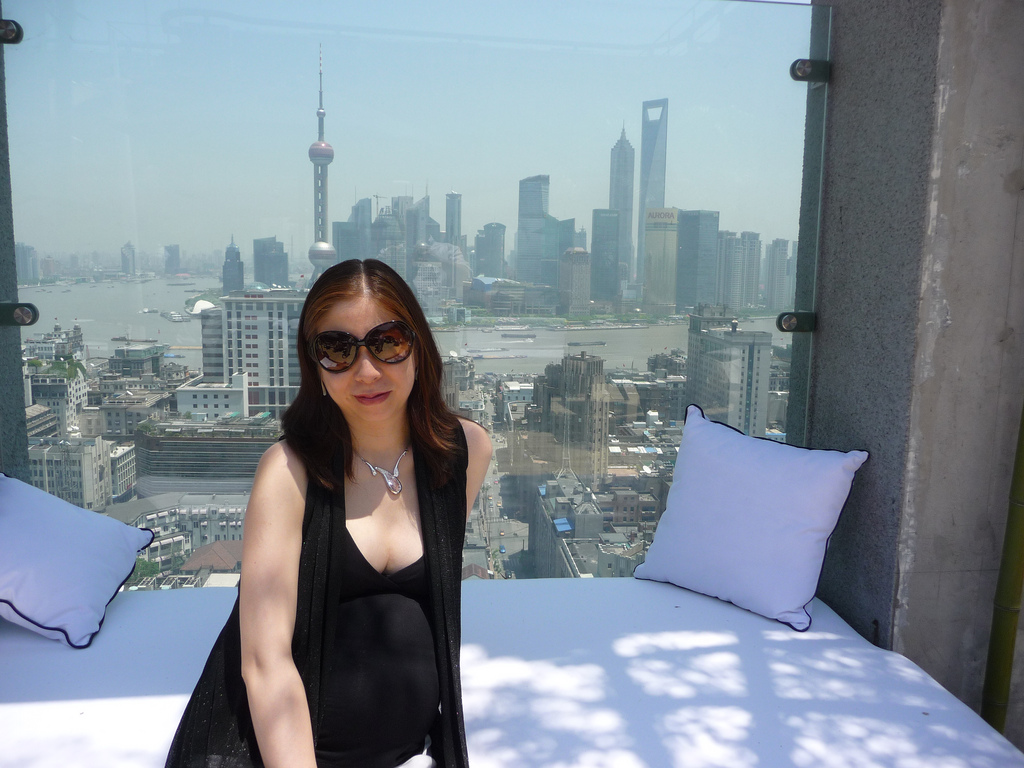Apr-2014
Living in Shanghai – Memoirs of an Expat Wife
Living in Shanghai
If you haven’t been to China before, moving and settling in Shanghai can be an unsettling experience. I’ve never been much of a globe-trotter, and the only time that I seriously thought about living in China was when my husband told me we were moving to Shanghai, in just two months.
Moving to Shanghai
My husband’s company buys a lot of stuff from China and he was moving there after a promotion and raise. I had heard that living in China was cheaper and one could save money, so my initial feelings at the prospect of relocating were positive. The excitement went downhill from that point, giving way to anxiety.
I started looking online about information on expat living in China. Except for a rather old article in the Telegraph about living in Shanghai and some other impassioned articles, there wasn’t much credible or helpful information that I could find online. I took a mental note to come up with a guide to living in Shanghai when I had moved and settled there.
First Impressions
Shanghai is a city that has traditionally welcomed foreigners. That doesn’t make it any friendlier for a hapless spouse like me, though. I remember the landing at the Shanghai International Airport and the chaos that ensued. The memories of the first week are a jumble of confusing sights and sounds. Streets and buses thronged with people, the endless incomprehensible Mandarin chatter that you overhear, the illegible Chinese signboards, an old city backdrop that might as well belong in Paris or London, and lots of people—these are my first impressions about Shanghai. The city was a wonder too overwhelming for the senses to perceive, too sprawling to explore, too complex to understand. It takes several days before you know which way is up.
The Language Chasm
If you’re smart, you’ve already taken a course in basic Mandarin, because that would place you ahead of me with my 6-month struggle of trying to learn it on the street. I’m still not able to get over the language barrier. Even if you know 20 sentences of Mandarin, they can go a long way for you in dealing with the locals. Knowing how to speak Chinese would keep a lot of extra money from flying out of your purse, because you can negotiate better, look more knowledgeable, and take advantage of several special offers and services announced for the locals.
A Roof over our Heads
Next to the language, finding the right place to stay is the next biggest challenge. In our case, we were going to be in Shanghai for at least one year, so we decided to go for a yearly rental contract. We visited several properties that we had shortlisted online before finalizing the one that we found most suitable. We were lucky to get a 3-bedroom serviced apartment in Pudong area. The famous Century Avenue is just 5 minutes away from here, and a couple of Metro stations are located close by, so it’s never a problem to get around. Thank fully, we live in a compound that houses other expats, so there’s a transport service available for picking and dropping kids to school. That takes half the load off my mind. We have a beautiful park barely 10 minutes away, where locals and foreigners can be seen starting their day with a dash of endorphin. The Chinese wake up very early, and it seems all of them work out.
The apartment that we got was fully furnished. It costs us under 20,000 Yuans a month, which is about £2,000. Pudong, the area where we live, is comparable to Chelsea or other affluent neighbourhoods in London. A similar property would cost me at least £5,000 a month back home. We could have easily rented a two-bedroom house a little further off from the city centre in half the price, but I wanted us to stay close to the city. It turned out to be a wise decision, as the hassle of travelling to the city might have been too much to handle had we been living in the periphery.
Getting Around
Using the public transport can be like exploring a labyrinth of Metro lines and bus routes. Make sure you get a good map or navigate on your smartphone when heading out. It might be a month before you get to know the bus routes, the metro lines, and start getting the discount passes that you need.
Underground: Metro is the quickest and the most convenient way to get around, but only when it’s not overcrowded. As an expat living in Shanghai, you’ll find yourself using lines 1, 2, 4, 7, 9, and 10 most frequently. They get you to almost all the places of your interest in and around Shanghai. You can take help from the Shanghai metro website or an interactive subway aid available at exploreshanghai.com.
Car: You will not be permitted to drive unless you have a Chinese driver’s license, which you’ll only be able to get if you have a residency permit. Even if you have a driving license, using your own car in the city can be disastrous, as you’ll probably not be able to reach anywhere without getting stuck in grinding traffic for hours.
Bus: Shanghai buses can be seen bursting at the seams with passengers, especially during the morning and evening work hours and on weekend afternoons. They are endemic and very cheap, charging just ¥2 per hop, but may be more suitable for the intrepid because of the struggle that you need go through in figuring out which route leads where and in braving the crowds. I know that Bus No 20 and 37 ply between People’s Square and the Bund. I use them only when are not crowded.
Taxi: Taxi remains a more convenient, though time consuming option. They are cheap, and you can see a confusingly huge variety of them trotting on the streets. Your best bet is the turquoise-blue taxi (Da Zhong Taxi), the yellow taxi (Qiang Sheng Taxi), and the blue taxi (Jin Jiang Taxi). They are the best because they are prompt and comfortable, and the drivers know a bit of English.
Bicycle: Many people in Shanghai use bicycle to get around. Many foreigners living in our compound use bicycles. Bicycles look blissful when you see them swoosh past you as you are sitting stranded in your taxi or car. I’m planning to get one myself, now that I know the twists and turns of Shanghai somewhat.
In my next post, I plan to tell you about shopping, restaurants, schooling, and things to do in Shanghai. Did you find my post useful? Would you like to ask anything? I’d love to hear from you in your comments.
Miki Mo
Latest posts by Miki Mo (see all)
- Important Things you Need to know Before Donating Eggs - October 2, 2023
- How to Manage the Compensation Money you Receive from Personal Injury Settlement - September 10, 2023
- Tips and Tricks to get Maximum Compensation after Facing a Car Accident - September 1, 2023





Leave a Reply